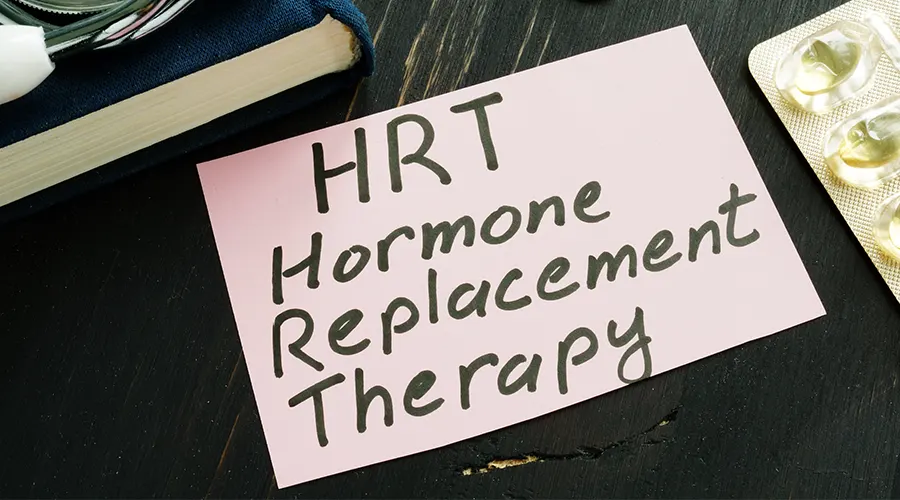Most women experience menopause between ages 45 and 55, though the exact timing varies from person to person. During this transition, the body goes through several hormonal changes that affect many aspects of health and well-being.
Understanding the possibility of delaying menopause matters because it can significantly impact a woman’s quality of life and long-term health. The physical and emotional changes that come with menopause can affect daily activities, relationships, and overall wellness. Some women may want to delay menopause to maintain fertility longer or reduce health risks linked to early menopause.
In this article, we’ll explore various ways to potentially influence the timing of menopause. We’ll look at natural methods, medical options, and lifestyle changes that might help. We’ll also separate fact from fiction by examining scientific evidence and common myths about delaying menopause.
Understanding Menopause and Its Timeline
Natural Progression of Menopause
Menopause happens in stages, starting with perimenopause. During perimenopause, which can last several years, periods become irregular as hormone levels start to change.
When you haven’t had a period for 12 straight months, you’ve reached menopause. After this point comes postmenopause, which lasts for the rest of your life. Throughout these stages, your body makes less estrogen and progesterone, leading to various changes.
Signs of Early Menopause
Early menopause often shows up through irregular periods, hot flashes, and mood changes. If you’re on birth control pills, these signs might be harder to spot since the pills can mask natural hormone changes. Night sweats, vaginal dryness, and sleep problems can also signal the start of menopause.
Factors Affecting Menopause Timing
Your genes play a big role in when you reach menopause. If your mother had early menopause, you might too. Lifestyle choices also matter. Smoking can bring on menopause up to two years earlier. Your diet, stress levels, and overall health can influence timing as well.
How to Delay Menopause Naturally
Dietary Choices
What you eat might help influence when menopause begins. Foods rich in phytoestrogens, like soybeans, tofu, and flaxseeds, contain natural compounds that act like estrogen in your body. Adding these foods to your diet might help balance hormone levels. Getting enough vitamins and minerals matters too.
Vitamin D supports hormone production, while vitamin E can help with hot flashes. Calcium keeps your bones strong, which becomes extra important during menopause. Remember to drink plenty of water and eat a balanced diet with whole grains, fruits, and vegetables.
Exercise and Physical Activity
Regular exercise can make a real difference in your hormonal health. Both cardio exercises like walking or swimming and strength training with weights help maintain hormone balance. When you exercise, your body releases endorphins that reduce stress and improve mood. Keeping a healthy weight through exercise might also delay menopause. Try to move your body for at least 30 minutes most days of the week.
Stress Management
High-stress levels can upset your hormone balance and possibly speed up menopause. Simple meditation, gentle yoga, or deep breathing can help calm your mind and body. Even taking a few minutes each day to sit quietly can lower stress hormones. Many women find that regular mindfulness practice helps them feel more balanced and peaceful.
Avoiding Menopause Accelerators
Some habits can make menopause come earlier. Smoking is a big one and it can trigger menopause up to two years sooner than normal. Drinking too much alcohol might also affect your hormones.
Try to limit exposure to chemicals in plastics and pesticides, as these can disrupt hormone balance. Small changes in your daily habits can make a difference in your body’s timeline.
Support hormonal balance naturally. Start Menocil® today!
Does Birth Control Delay Menopause?
 Does Birth Control Delay Menopause
Does Birth Control Delay MenopauseMechanism of Birth Control Pills
Birth control pills work by giving your body synthetic hormones that prevent pregnancy. These hormones stop your ovaries from releasing eggs and change your normal hormone patterns. The pills contain versions of estrogen and progesterone that keep your cycle regular and predictable.
Evidence and Research Findings
Birth control pills don’t actually delay menopause, but they can hide the signs that it’s starting. While on the pill, you might not notice the usual symptoms of menopause because the hormones in the pills mask them. When you stop taking birth control, your body will show where it really is in the menopause process. Research shows that using birth control doesn’t change when menopause naturally occurs.
Common Questions
Many women wonder if birth control affects menopause timing. The simple answer is no because the pill doesn’t delay menopause itself. You can go through menopause while taking birth control, but you might not realize it’s happening. Signs of early menopause can be hard to spot while on the pill because the hormones keep your periods regular. If you’re concerned, talk to your doctor about testing your hormone levels.
Medical Interventions to Delay Menopause
Hormone Replacement Therapy (HRT)
 Hormone Replacement Therapy
Hormone Replacement TherapyHormone replacement therapy helps manage menopause symptoms by giving your body extra estrogen and progesterone. While HRT doesn’t actually delay menopause, it can make the transition easier. Your doctor might suggest HRT if you have severe hot flashes or other troublesome symptoms.
However, HRT isn’t right for everyone. Some women have a higher risk of blood clots or certain cancers when taking hormones. Your doctor will help you weigh the benefits against possible risks.
Menocil®: Your natural solution for menopause relief. Buy today!
Ovarian Tissue Freezing and Reimplantation
New medical advances offer interesting possibilities for preserving fertility. Doctors can now freeze small pieces of ovarian tissue and reimplant them later. This technique might help delay menopause symptoms for a while.
The frozen tissue can start making hormones again after reimplantation. However, this approach is still quite new. We need more research to fully understand how well it works and how long the effects last.
Medications and Supplements
Some doctors prescribe medications to help with specific menopause symptoms. DHEA supplements might help with mood and energy levels. Melatonin can improve sleep problems during menopause.
However, supplements aren’t strictly regulated like medicines. Always talk to your doctor before starting any new supplement, as they might interact with other medications or cause unwanted effects.
Risks and Ethical Considerations
Health Risks of Delaying Menopause
Trying to delay menopause isn’t without risks. Extended exposure to estrogen might increase your chances of certain cancers. Medical interventions can have side effects too. Your body naturally transitions to menopause for good reasons, and interfering with this process needs careful consideration. Some women might face complications from hormonal treatments or surgical procedures.
Ethical Implications
Society sometimes puts pressure on women to stay young and fertile longer. This can make women feel they should delay menopause even if they don’t want to. The cost of advanced treatments also raises concerns about fairness. Many women can’t afford expensive procedures, creating a gap in access to these options. We need to think carefully about these social and ethical issues.
Myths and Misconceptions
Common Misbeliefs about Menopause Timing
Many myths exist about controlling menopause timing. Some people wrongly believe that certain diets or exercises can stop menopause completely. Others think birth control pills prevent menopause forever. It’s important to know that while you can support your body during this transition, you can’t completely prevent menopause. It’s a natural part of aging. Want to clear up more misunderstandings? Learn insightful information in Menopause Myths and Facts.
Scientific Evidence vs. Anecdotal Claims
Science gives us reliable information about what works and what doesn’t. While some women share stories about delaying menopause through various methods, these personal experiences don’t always match scientific findings.
Research helps us separate fact from fiction. Studies show that genetics and some lifestyle factors affect menopause timing, but many popular beliefs lack scientific support.
Future of Menopause Research
Advancements in Reproductive Medicine
Medical science keeps making new discoveries about menopause and aging. Researchers are developing better hormone therapies that might have fewer side effects than current treatments.
They’re also learning more about how to keep ovaries healthy longer. New blood tests can now predict when menopause might start, helping women plan better for this transition. Scientists are even exploring how stem cells might help maintain ovarian function.
Potential Breakthroughs
The future looks promising for menopause treatment. Doctors are starting to create personal treatment plans based on each woman’s genes and health history. This means you might get care that works better for your specific needs. Scientists are also finding new ways to protect eggs from aging. These discoveries could help women have more control over their reproductive timeline in the future.
Gentle, natural menopause relief starts with Menocil®. Shop now!
Conclusion
We’ve explored many ways to approach menopause timing, from natural methods to medical treatments. While you can’t completely prevent menopause, you can support your body through the transition.
Diet, exercise, and stress management play important roles in how your body handles these changes. Birth control pills don’t delay menopause but can mask its signs. Medical treatments like hormone therapy can help manage symptoms, though they come with their own risks.
When thinking about delaying menopause, it’s important to balance what you want with what’s healthy for your body. There’s no one-size-fits-all answer. What works well for one woman might not be right for another. Always work with your healthcare provider to make choices that fit your personal health needs and goals.
Take charge of your health as you approach menopause. Learn about your body and pay attention to its changes. Talk openly with your doctor about your concerns and goals. Consider both natural and medical options, but always get professional advice before trying new treatments. Remember, menopause is a natural part of life, and with good information and care, you can handle this transition successfully.



